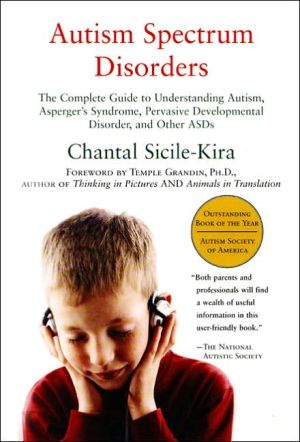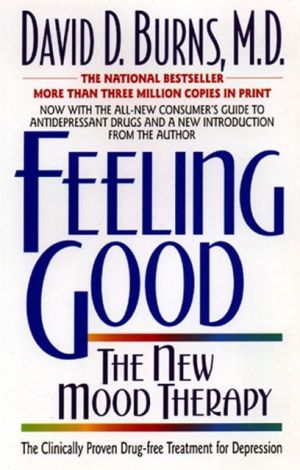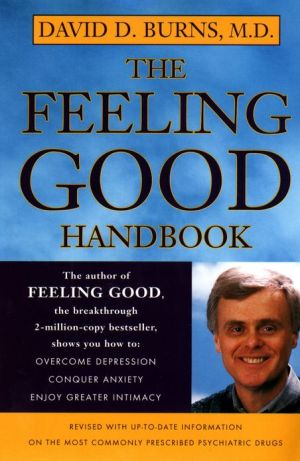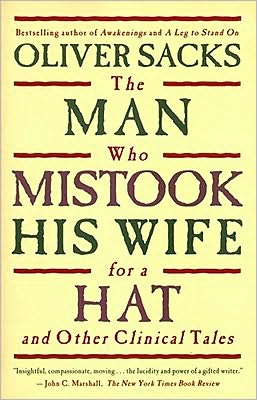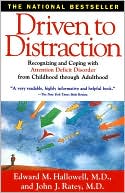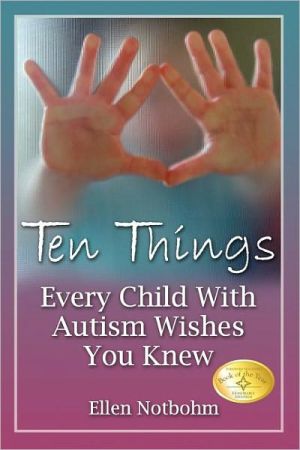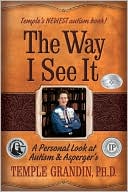Autism Spectrum Disorders: The Complete Guide to Understanding Autism, Asperger's Syndrome, Pervasive Developmental Disorder, and Other ASDs
Based on nearly two decades of Chantal Sicile-Kira's personal and professional experiences with individuals and families affected by this growing epidemic, Autism Spectrum Disorders explains all aspects of the condition, including:\ - The causes of autism spectrum disorders\ - How to properly diagnose ASDs\ - Treatments based on behavioral, psychological and biomedical interventions\ - Coping strategies for families\ - Educational needs and programs\ - Living and working conditions for...
Search in google:
Based upon Chantal Sicile-Kira's personal and professional experiences with autistic disorders, this comprehensive and accessible source covers all aspects of autism conditions, including Asperger's Syndrome and Pervasive Developmental Disorder, including: - The causes of autism spectrum disorders - How to properly diagnose ASPs - Treatments based on physiology, sensory, and biomedical interventions - Coping strategies for families - Educational programs - Living and working conditions for adults with ASP - Autism Treatment Evaluation Checklist (ATEC) Library Journal Sicile-Kira draws on 20 years' experience as both a professional and a parent in this single-volume guide to Autistic Spectrum Disorders (ASD), first published in Britain in 2003. She covers many topics (e.g., education, diagnosis, treatments, family life, resources, and life for adults with autism) but does not usually provide enough detail to be truly informative, even in an introductory manner. In part, the problem lies in her using quotes to explain ASD; her selections primarily come from five people her own son and authors Temple Grandin, Liane Willey, Donna Williams, and Tito Mukhopadhyay not a sufficient cross section. Sicile-Kira does, however, provide a few strong chapters, such as education especially when discussing getting through an Individualized Education Plan (IEP) meeting and services for adults with ASD. For a better single volume on ASD, see Mitzi Waltz's Autistic Spectrum Disorders. An optional purchase for public libraries. Corey Seeman, Univ. of Toledo Libs., OH Copyright 2004 Reed Business Information.
Dispelling the Myths of ASD\ Myth #1: The Rain Man Myth\ There are certainly individuals with ASDs who have extraordinary talent or, more usually, an inconsistent profile where they excel or do well in one area and have low performance in others. For example, years ago I worked with a young man who had a gift for memorizing and was infatuated with sports. On my first day of work at Fairview State Hospital, he came up to me and said, "I used to be a sports newscaster. Ask me any question about sports and I'll fill you in." He had memorized the pertinent statistics for all the World Series from the previous two decades. We talked sports and I did find him a bit odd. For a few minutes I entertained the thought that he was another employee, thinking what a dedicated person he must be to quit working for the media and join the staff at this hospital. Then I looked on my roster and realized he was one of my students for functional living skills. He definitely had a talent for sports statistics, but hadn't yet learned how to dress himself independently or tie his own shoes.\ However, there are many more individuals with ASDs who have no particular special talent, any more than the rest of us do.\ Myth #2:\ Everyone who has an ASD is a genius, a Thomas Jefferson in waiting. It is true that some people with ASDs are geniuses, but not everyone is. Thomas Jefferson, it appears, had characteristics of Asberger's, within the range of modern diagnostic criteria. Others such as Beethoven, Isaac Newton, and Einstein have all been mentioned as famous people who could have been diagnosed as on the spectrum. However, for every person with ASD who is a genius, there are many more who are mere mortals like ourselves.\ Myth #3:\ Everyone who has an ASD is mentally retarded.\ If you start with the perception that someone is mentally retarded, the expectations for that individual aren't going to be very high, and he will never be given the opportunity to reach as far as he can go. Better to hope he's a genius and be disappointed than never to have given a person the benefit of the doubt. The reality is that the population of people with ASDs is much like the general population: some of us have special talents, some of us are geniuses, and some of us are retarded. But most of us are just average earthlings.\ Myth #4:\ Everyone who has a symptom of an ASD has an ASD. If a person has one or two characteristics of an ASD, it does not necessarily mean he has an ASD. It is the number and severity of behavioral characteristics in the areas of social interaction, communication, and repetitive stereotypical behaviors that causes concern. That is why it's important to consult with a medical professional who is familiar with ASDs.\ Myth #5: There is no cure for (or recovery from) ASDs\ There is no magical pill that cures everyone. However, there are cases of children who were diagnosed as clearly having ASDs, and who are now considered to be neurotypical or symptom-free by professionals thanks to interventions they have received. Recovery means that they have to have overcome some of the symptoms they had that made it difficult for them to live full and successful lives in a world created by neurotypicals. Myth #6:\ People with ASDs have no emotions and do not get attached to other people\ It is true that people with an ASD show emotions in a different way from neurotypicals. However, just because a person does not show emotions in the way we are used to seeing them exhibited does not mean that they don't have feelings. One only has to read accounts by people with autism to realize that some individuals express emotions differently or are unable to show emotion at all because they are not in control of their muscles or motor planning.
AcknowledgmentsxiForewordxvPrefacexixNotes about the BookxxiiiChapter 1The Myths and History of Autism Spectrum Disorders1Chapter 2What Autism Spectrum Disorders Are and How to Know If a Person Has One13Chapter 3What Causes Autism Spectrum Disorders and Why Do People with ASDs Act the Way They Do?28Chapter 4Newly Diagnosed Adults and Parents of Children with an ASD: After the Diagnosis52Chapter 5Treatments, Therapies, and Interventions86Chapter 6Family Life139Chapter 7Education179Chapter 8Community Life239Chapter 9Adults Living and Working with Autism Spectrum Disorders276Closing Comments309Appendix313Resources317Bibliography337Index353
\ Library JournalSicile-Kira draws on 20 years' experience as both a professional and a parent in this single-volume guide to Autistic Spectrum Disorders (ASD), first published in Britain in 2003. She covers many topics (e.g., education, diagnosis, treatments, family life, resources, and life for adults with autism) but does not usually provide enough detail to be truly informative, even in an introductory manner. In part, the problem lies in her using quotes to explain ASD; her selections primarily come from five people her own son and authors Temple Grandin, Liane Willey, Donna Williams, and Tito Mukhopadhyay not a sufficient cross section. Sicile-Kira does, however, provide a few strong chapters, such as education especially when discussing getting through an Individualized Education Plan (IEP) meeting and services for adults with ASD. For a better single volume on ASD, see Mitzi Waltz's Autistic Spectrum Disorders. An optional purchase for public libraries. Corey Seeman, Univ. of Toledo Libs., OH Copyright 2004 Reed Business Information.\ \
